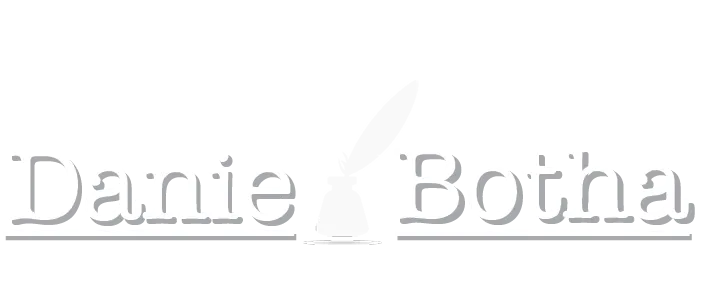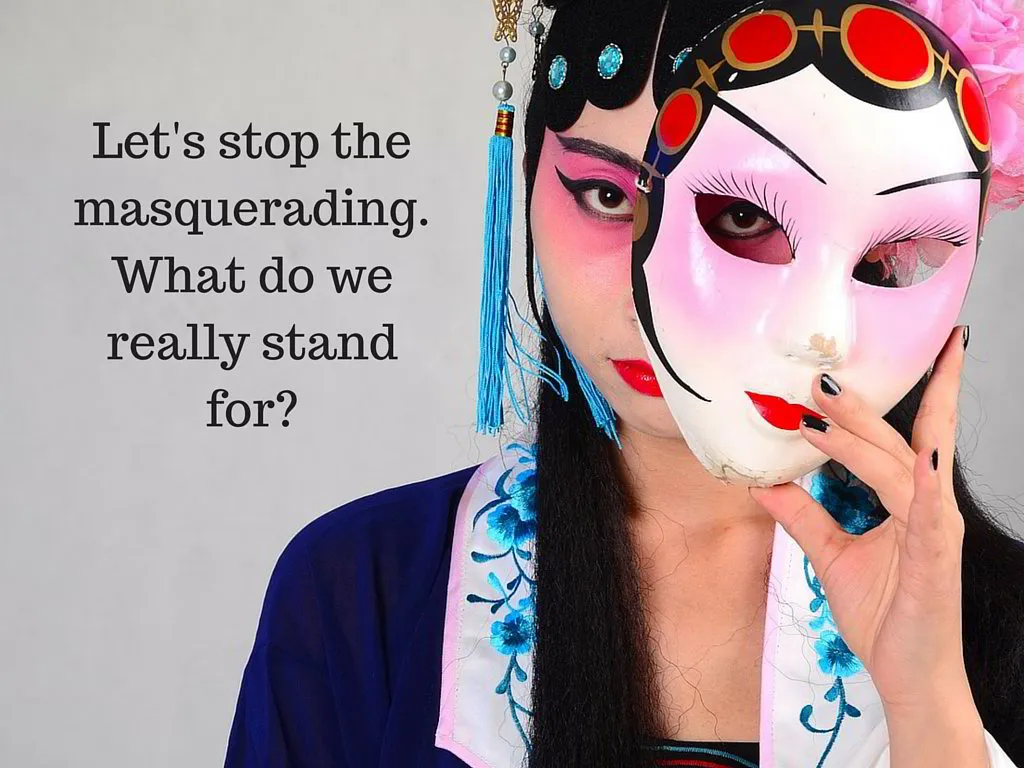What do we really stand for?
Validation.
We crave it. The urge to belong. To be accepted. I’ll do anything, we say—literally anything, to proof to the world that I matter. That I’m not insignificant, not a failure, a non-achiever—a nobody.
“I’m somebody of value!” You cry.
And you’re right—every person on earth has great value.
When I was in grade six, I assembled this pumpkin colored outfit: a long sleeve shirt, short pants, and knee-length socks all in Halloween-orange, with a two-inch fake-leather belt with matching black shoes. It was my coveted after-school attire. It was absolutely hideous! But I was desperate to fit in.
And now that we’re all grown up—don’t we still do the same? Crave affirmation. We holler for attention, each propped on their private soap box, on the street corner or in the middle of the square—demanding an audience. But by now we have learned to wear a mask to hide behind.
And, over time, we’ve lost track of what we’re standing for.
Justification.
“The world is a dangerous place to live; not because of the people who are evil, but because of the people who do nothing about it.” Albert Einstein.
We’ve settled for less. We’ve accepted, “there’s nothing we can do about it. It’s God’s will.” Sometimes it is, but so often it’s due to human action or inaction. Granted, it’s tougher when we’re not in a privileged position or in a position of power. How can we jeopardize our job, our livelihood by speaking up? We’ve become so entangled in political correctness and playing it safe. We’re too scared to do extraordinary things. See what Darius Foroux say about it. We hesitate and we fumble.
But is it true that we cannot make a difference?
It is so easy to hide behind the fact that we (believe we) are insignificant. And hence we cut ourselves free. Free to remain invisible, remain silent, and look the other way.
Why do we so often do nothing?
My royal we include us all: Joe Public, mayors, premiers, ministers, presidents, generals, CEOs, teachers, doctors, nurses, professors, contractors, entrepreneurs, spouses, students, you, me …
We do nothing because of apathy, because of fear, or because of a vested interest we have in the irregularity, omission or abuse.
Why would we support and elect a politician who spews contempt on his followers, his rivals and the press? But we do.
Why would we elect a politician who runs for office, a man who cannot remember how many weeks he was out of the country the previous year? But we do.
Why would we not believe a woman when she comes to the police 16 times, begging for help, for protection against her abusing partner? But we don’t. Then he kills her weeks later.
How do we justify the statistics, only 0.5% of sexual assault cases in Canada reach the courts? In 2014, of the 633,000 self-reported sexual assaults, only 0.2 % ended in convictions. Is this the message we send to the young girls and woman of the world—the victims of abuse—it’s too bad. As the one judge said: you should have closed your legs? And to our young boys and men the message is equally powerful: go ahead, take what doesn’t belong to you, plunder, destroy countless lives through your selfish acts—nothing will happen to you. Sadly, we do.
How is it possible that between 300-400 physicians and medical students die, due to suicide every year (US numbers only), and so little is done about it, other than wrapping it in a cloak of secrecy? Any death due to suicide is a tragedy.
How do we justify the practice as physicians, to perform elective surgery on patients, whom we know are not optimized? Modern science and technology enable us to pull everyone through alive, but they don’t do so well following the surgery. Why do we omit the inexpensive, but effective, preparation of our patients: improve functional fitness, optimize nutritional status and bolster psychological robustness? But we do. Due to medical tradition, skewed financial incentives and apathy.
How is it possible that a city can implement a new reduced-speed school zone law, with hefty fines for speeds exceeding 30 km/h, but withhold placing appropriate signage at more than a 100 of the schools? They do, because we don’t hold them accountable.
How do we morally justify the practice that rules and laws of a country, don’t apply to all it’s citizens? Making the majority of its citizens, second-class members, but good enough to pay the taxes? How, if we justify this politically correct, but ethically unfair arrangement, can we claim we practice equality?
Perhaps Martin Luther King Jr. looked further when he said, “I have a dream that my four little children will one day live in a nation where they will not be judged by the color of their skin, but by the content of their character.”
We yearn validation and acceptance. We blame our inaction on our apparent insignificance and hide behind our masks, happy to do nothing. Safe in our little cocoon.
All is well, because we live in an apparent democracy. We keep quiet, mind our own business and pay our taxes. (That is, if we don’t have a contact in off-shore banking.)
What then, will it require of us to take action? To stand up? To speak up? Courage?
We need more than courage. We need backbone. We need character. We need grit to do what is morally right.
Fortunately, “courage is contagious. When a brave man takes a stand, the spines of others are often stiffened.” Billy Graham
Often it takes one person, one girl to rise, one man, one woman, to stand and say: no more. And for others to follow their bold example. This is how we start a revolution. A revolution, not of violence, death and destruction, but a movement to stop apathy, indifference, entitlement, corruption and abuse.
A moral revolution.
To do what is right, not politically correct.
We may then, and only then, find our souls.
But, it’s so much easier to keep our masks on—and enjoy anonymity
We all wear different masks: masks of insignificance, of impotence, of indifference, of indignation, of sophistication, of superior education, of legal prowess or masks of financial independence.
No one knows the real “us” underneath anymore. Fact is, neither do we. And we are too scared to look.
We are too scared to be honest, to look inside our own hearts, search our own souls.
“So now you want honesty? We’ll give you honest!”
We’re mad!
We’re mad at the world. (It owes us.)
We’re mad at people with a different skin color. (We don’t understand them.)
We’re mad at people following a different religion. (We feel intimidated.)
We’re mad at people who speak our language with an accent. (They talk funny.)
We’re mad at the government, at the boss, the wife, the kids, the doctor, the dentist, the gas station attendant—at society at large.
They’re all idiots.
And in our anger, we offload our ire on social media, working ceaselessly to recruit disciples, like-minded souls, who wear similar masks. And we feed on each other and the belief we only have rights. That freedom means the absence of rules, of laws, of compassion, not realizing, we have become its shackled slaves.
It’s fascinating how often we forget this simple biological fact: None of us, and it means NONE of the more than seven billion people on earth, had ANY say in (i) who their parents were, (ii) where they were born (which house, clinic, hospital, neighborhood, town, city or country) and (iii) what their mother’s tongue was. (And yes, this includes skin color and ethnicity)
We easily forget this. Whether you were born in poverty or privilege—you had no choice in the matter. Those three factors do not make a person good or bad, superior or inferior. But only later, as we grow up and make our own choices, and especially as adults, does it come into play.
The choices we make then, that determines many things—also our character.
Liberation
Let’s not spread animosity. Let’s not pollenate the world with more brokenness and hopelessness. We need solutions. A second injustice can never heal a first one.
It’s a choice.
Not to hate, but to forgive. To seek and find solutions. Some happiness is possible. See what Benjamin P. Hardy writes about finding beauty and joy.
No one said it’s easy.
It’s a choice: To speak up. Do do what is morally right, not what is popular. But, we’ll do it with compassion, remembering, every person on earth has great value.
What is your purpose in life?
To find validation. Become famous. Make millions. Retire early. Sure.
Then what?
What are you really living for?
Let’s stop hiding, stop justifying, let’s stop with all the BS, the masquerading. Let’s be bold and brave enough and remove our masks.
Perhaps you are only trying to survive. Then it’s still applicable:
We will then discover our souls, find peace and experience joy. (And, in the process, make a difference.)
If this article resonated with you, please share and leave a comment.
© 2017 DanieBotha.com. All rights reserved.
Image: Mia Powterr – pixabay.com


